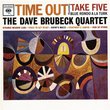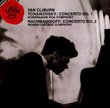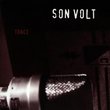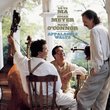| All Artists: Percy Grainger, Gustav Holst, John Eliot Gardiner, Philharmonia Orchestra of London Title: Holst: The Planets; Grainger: The Warriors Members Wishing: 0 Total Copies: 2 Label: Deutsche Grammophon Release Date: 9/19/1995 Genre: Classical Styles: Ballets & Dances, Ballets, Historical Periods, Modern, 20th, & 21st Century Number of Discs: 1 SwapaCD Credits: 1 UPC: 028944586022 |
Search - Percy Grainger, Gustav Holst, John Eliot Gardiner :: Holst: The Planets; Grainger: The Warriors
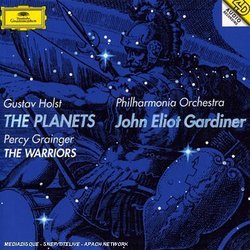 | Percy Grainger, Gustav Holst, John Eliot Gardiner Holst: The Planets; Grainger: The Warriors Genre: Classical
No Description Available. Genre: Classical Music Media Format: Compact Disk Rating: Release Date: 19-SEP-1995 ![header=[] body=[This CD is available to be requested as disc only.]](/images/attributes/disc.png?v=430e6b0a) ![header=[] body=[This CD is available to be requested with the disc and back insert.]](/images/attributes/disc_back.png?v=430e6b0a) ![header=[] body=[This CD is available to be requested with the disc and front insert.]](/images/attributes/disc_front.png?v=430e6b0a) ![header=[] body=[This CD is available to be requested with the disc, front and back inserts.]](/images/attributes/disc_front_back.png?v=430e6b0a) |
Larger Image |
CD DetailsSynopsis
Product Description No Description Available. Genre: Classical Music Media Format: Compact Disk Rating: Release Date: 19-SEP-1995 Similarly Requested CDs
|
CD ReviewsTwo Fabulous Orchestra Works D. A Wend | Buffalo Grove, IL USA | 11/20/2002 (5 out of 5 stars) "Good recordings of The Planets abound, so it is largely a matter of personal preference as to which is the best. Having heard The Planets in concert once I wish it was programmed more frequently but perhaps its popularity has earned it some disdain from conductors. This recording conducted by John Elliot Gardiner in among the very best. Mr. Gardiner brings forth all of the subtle shadings in the score and the Philharmonia Orchestra responds with an excellent performance. This is an engaging performance. I read a comment by a reviewer that Mr. Gardiner's recording sounded very fresh to his ears - the reason: rhythm. Mr. Gardiner insisted that all the articulation in the score be observed. So, the fleet-footed Mercury dances on air rather than being earthbound and Jupiter is indeed jolly. The reason to buy this disc is The Warriors by Percy Grainger. The reviewer of this disc got it wrong. John Elliot Gardiner IS the conductor but The Warriors requires an offstage brass ensemble, which must have its own conductor (actually, Grainger calls for three in the score). This is noted on the back of the CD (Achim Holub is assistant conductor) in fine print, as it should. Grainger wrote The Warriors as a ballet intended for Diaghilev's Ballet Russe but the commission he hoped for never happened. The music was written with the composer's frank views of sex in mind and intended as "a wild sexual concert." Certainly, it was ahead of its time in conception but also in scoring. The orchestra is huge and also requires three grand pianos and an extended percussion section. The Warriors was also an experimental work for Grainger. The rhythms and the way the percussion pulsates and interacts is remarkable. For all the size of the orchestra, this recording has exceptional clarity. Even if you have The Planets by other conductors, this one needs to be in your collection. But it if not for Holst, then for Grainger." Fresh look at an old friend Brett A. Kniess | Madison, WI | 04/16/2000 (5 out of 5 stars) "Holst's masterpiece, The Planets, is coupled here with the virtually unknown, The Warriors, by Percy Grainger. Both works show the extroverted approaches from the composers during the early part of the 20th century, and both employ unique orchestrations and textures to those means. One of the great characters in classical music, Percy Grainger, describes the 18-minute work The Warriors, as ghosts of male and female warriors...spirited together for an orgy of war-like dances, processions, and merry-makings...with amorous interludes. With large and diverse orchestrations, the piece nearly yields to schizophrenia, but really is outbursts of unadulterated fun. Offstage brass ensemble and a host of percussion, including three pianos, make this Grainger's largest work. Rarely performed, Grainger and the Philharmonic do not hold back, but present a piece of sincere and outgoing revelry rarely heard from the Brits; Gardiner even outdoes Sir Simon Rattle (an all-Grainger disk on EMI). With occasional sections of over-sentimentality and lyrical romanticism, most of the work is orgiastic bliss. Great music! Holst's The Planets is a seven-movement work describing the Greek God associated with the name of seven planets. The famous first movement, Mars the Bringer of War, is an in your face depiction of thoughts about war at the beginning of the century. Set in an uneven 5/4 meter, and employing a heavy rising brass motive with a trudging march feel, John Eliot Gardiner gives each beat weight and never wavers in tempo. Venus the Bringer of Peace is the first movements' foil; one of solidarity and contentment, featuring the lush strings of the Philharmonia Orchestra. Bordering towards impressionism, it is obvious Holst's feelings of war vs. peace. Gardiner's adagio tempo is a few ticks faster than adagio, but the forward-moving feeling works for him, rather than against, and there are no feelings of wallowing in sound. The virtuosic and light Mercury the Winged Messenger, lets the woodwinds and strings show their abilities. The two against three throughout urges the piece on, and Gardiner takes the movement in stride. The most famous movement, Jupiter Bringer of Jollity, here is taken swifter than I have heard anywhere else. But Gardiner does not play with the tempo, nor stretches time as much as other conductors do, but instead, marches forward. This has pluses and minuses, but an interesting interpretation, if not unsympathetic, and showing the virtuosity of the ensemble. Saturn the Bringer of Old Age is a plodding pessimistic view of old age. The oscillating chords of time, and long craggy melodies elicit some stubbornness. In contrast, Uranus the Magician is a sprite and virtuosic piece for the orchestra. Holst portrays the magician and his magic as one of fun, but the magician as a dark figure not to be messed with. The final Neptune the Mystic is just that, an unresolved misty outlook to the future. It is neither optimistic nor pessimistic, just unresolved. The addition of wordless female chorus evokes the timelessness of space and the universe, and fades into nothingness. All in all, this recording of the Planets is fresh and sparkling, presented in 4-dimension digital sound, the Philharmonia Orchestra is excellent; full, vibrant sound complete with organ, bass flute, bass oboe, tenor tuba, and various percussion. John Eliot Gardiner gives a very straightforward performance, a breath of fresh air in many cases. His interpretation is unsentimental, letting the music speak for itself, instead of forcing the issue. The performance is grand. With the addition of The Warriors, an epic work of carefree frivolity, this recording now can stand up against many classic versions easily. Highly recommended." Exhilirating Holst's "Space Odyssey" John Kwok | New York, NY USA | 02/08/2001 (5 out of 5 stars) "Gardiner's interpretation of Holst's "The Planets" ranks with the very best. According to a review I read in either the Penguin or Grammophone classical CD guides, it may be the definitive account, comparable with Dutoit's brilliant interpretation with the Montreal Symphony Orchestra and Andrew Davis' with the Toronto Symphony Orchestra. Gardiner is renowned or reviled - depending on whom you read - for his interpretations of Bach, Handel, Mozart and Beethoven using period instruments. Who could imagine that he feels quite at home conducting a popular 20th Century composition? Throughout Holst's symphonic suite, Gardiner's tempi are often faster, and the Philharmonia responds in a livelier, swiftsure fashion, than these other fine versions. Hence we are rewarded with an extraordinary performance well recorded by Deutsche Grammophon's engineers with their latest sound technology. Among the highlights are a brooding, menacing Mars, a lively, sprite Mercury, and a jovial Jupiter resonating with the ebullient sounds of the lush, verdant English countryside. Oddly enough, Leonard Slatkin recorded a version of "The Planets" with the Philharmonia around the same time, yet his subdued interpretation seems a bit dry, if not dull, by comparison. And so does Grainger's "The Warriors" on this CD, in stark contrast to Gardiner's electrifying interpretation of Holst. Yet this CD still deserves its five star accolade for Holst's 20th Century "Space Odyssey"."
|

 Track Listings (8) - Disc #1
Track Listings (8) - Disc #1